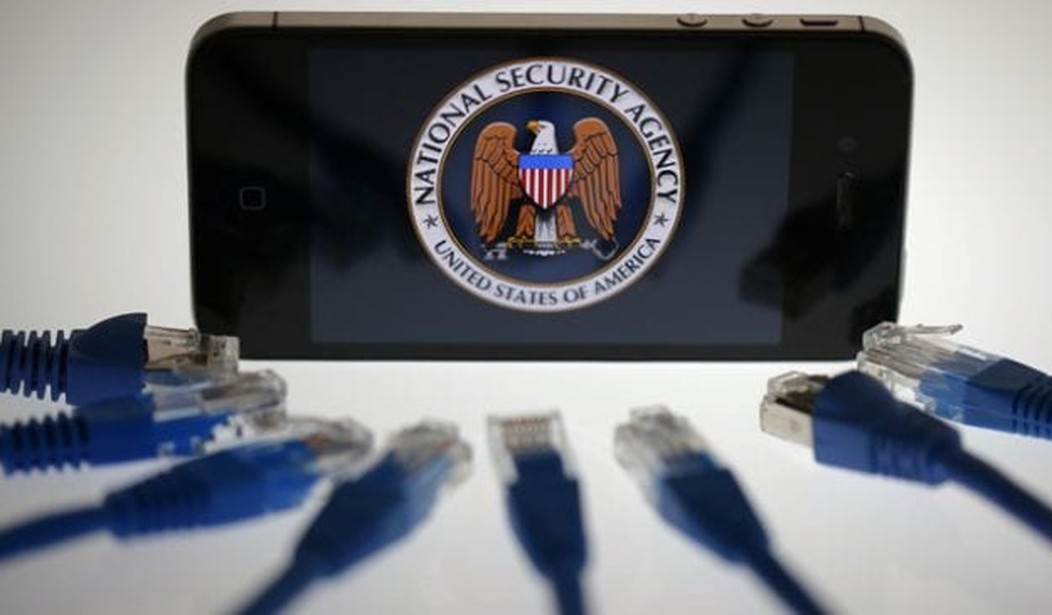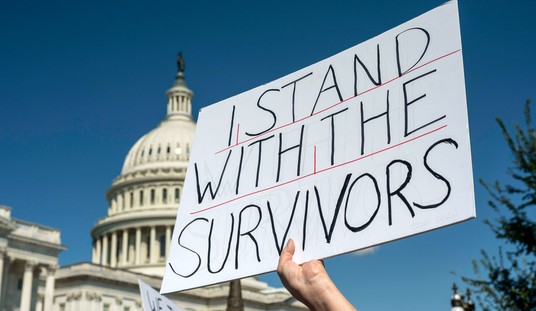Rep. Justin Amash (R-Mich.), one of the original co-sponsors of the USA Freedom Act that would make revisions to the Patriot Act, voted against the legislation on the floor of the House Thursday.
He explained his vote in a statement on his Facebook page, writing that the legislation had been “weakened in behind-the-scenes negotiations.”
Rep. Jim Sensenbrenner (R-Wisc.), the author of the legislation, admitted changes had been made but urged those like Amash who had supported the original version not to back away from the bill in Thursday’s vote.
“I was chairman of the Judiciary Committee when we passed the Patriot Act, which made our country safer while maintaining the civil liberties that differentiate us from our enemies. But the government abused the law and upset the delicate balance between privacy and security,” Sensenbrenner said in a statement issued after the House vote.
“While I wish it (USA Freedom Act) more closely resembled the bill I originally introduced, the legislation passed today is a step forward in our efforts to reform the government’s surveillance authorities.”
The USA Freedom Act was intended to rein in the Natural Security Agency’s ability to indiscriminately spy on U.S. citizens and end the collection of Americans’ private records. The legislation would also force the Foreign Intelligence Surveillance (FISA) court to operate more like a real court.
It was approved 303-121 by the House Thursday. However, many of those who had original co-sponsored it — like Amash —voted “no.”
Opposition to the legislation was bipartisan, with 51 Republicans and 70 Democrats voting against the bill.
Judiciary Committee member Zoe Lofgren (D-Calif.) said, “The NSA could drive a truck through its loopholes.”
Lofgren promised during a speech Wednesday that she would vote against it.
“I think it’s ironic that a bill that was intended to increase transparency was secretly changed between the committee markup and floor consideration, and it was altered in worrisome ways,” she said.
“It’s shameful that the president of the United States, the chairman of the House Permanent Select Committee on Intelligence, and the leaders of the country’s surveillance agencies refuse to accept consensus reforms that will keep our country safe while upholding the Constitution,” Amash also wrote on his Facebook page. “And it mocks our system of government that they worked to gut key provisions of the Freedom Act behind closed doors.”
However, Amash did admit the version of the Freedom Act approved by the House does include “a few modest improvements” like forcing the FISA court to appoint lawyers to argue for Americans’ privacy rights and publish its most significant opinions “so that Americans can have some idea of what surveillance the government is doing.”
The USA Freedom Act does codify many of the surveillance reforms that had been supported by the Obama administration.
Amash also wrote the bill would still allow the federal government to issue an order for sweeping records collection without probable cause. The NSA could, for instance, issue an order to collect all phone calls “made east of the Mississippi.”
Amash was one of the very few members of Congress the American Civil Liberties Union received any support from as the civil rights organization began its concerted effort to block the powers of the NSA a year ago after Edward Snowden’s leaks.
Laura W. Murphy, director of the ACLU Washington Legislative Office, admitted Thursday only hours after the House vote that the USA Freedom Act “was far from perfect.” She said in a statement that the ACLU did share the concerns of members of both parties, who like Amash said the bill did not go far enough.
However, she said it was still “an unambiguous statement of congressional intent to rein in the out-of-control NSA.”
Murphy also said the ACLU would lobby for “improvements” to the Freedom Act in the Senate.
Sen. Patrick Leahy (D-Vt.) sponsored a Senate version of the legislation and also said in a statement Thursday that he was disappointed in the weakened version that was approved by the House.
Although Leahy said the bill’s approval showed progress “few could have predicted less than a year ago,” he stressed it does not include “some of the meaningful reforms” contained in the original legislation.
He promised a hearing on the legislation before the Senate Judiciary Committee, which he chairs, this summer.
Sensenbrenner also said that the legislation, while not perfect, sends a clear message to the NSA: “We are watching you.”
Even though Amash was as outspoken as ever in explaining why he voted against the Freedom Act on Thursday, Amash also said the fact that the legislation has made it to the floor of the House was an indication of progress that would have been unimaginable a year ago.
In July, Amash and Rep. John Conyers (D-Mich.) nearly got a defunding of NSA surveillance activities through the full House, a bipartisan vote that Sen. Mark Udall (D-Colo.) called “a wake-up call for the White House.”
“The American people demand that the Constitution be respected, that our rights and liberties be secured, and that the government stay out of our private lives,” Amash wrote. “Fortunately, there is a growing group of representatives on both sides of the aisle who get it. In the 10 months since I proposed the Amash Amendment to end mass surveillance, we’ve made big gains. We will succeed.”









Join the conversation as a VIP Member